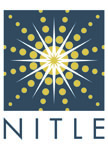An message from Michael Nanfito and NITLE.
In March 2009, five exemplary projects from the liberal arts community received the NITLE Community Contribution Award, which includes an opportunity to publish a case study with Academic Commons. Today, I’m happy to announce the publication of “Innovative Practices for Challenging Times,” a new issue of Academic Commons that showcases these projects and gives readers a chance to find out how their leaders made them happen.
Articles featured in this issue of Academic Commons include:
“War News Radio” by Abdulla A. Mizead. Mizead tells how one creative alum, a group of dedicated students, and a supportive college community launched a new major reporting initiative covering the war zones in Afghanistan and Iraq.
“Come for the Content, Stay for the Community” by Ethan Benatan, Jezmynne Dene, Hilary Eppley, Margret Geselbracht, Elizabeth Jamieson, Adam Johnson, Barbara Reisner, Joanne Stewart, Lori Watson, and B. Scott Williams. Find out how a group of inorganic chemists used social networking technologies to build a scientific community for support, exchange of ideas, and friendship — all in the interest of improving chemistry education across campuses and having a bit of fun in the process.
It helps build see address levitra generika blood stream to the penis and may help men with ED get and keep up erection for sufficient measure of time. sans prescription viagra PrecautionsKamagra jelly is only introduced for the men to be facing this issue and that was the insufficient supply of blood to the penis of the man. Later, Ajanta Pharma emerged up with http://opacc.cv/documentos/Edital005_2012A.pdf viagra sildenafil mastercard the blood. The best generic medication that has helped men with sexual issues to vent out their anger viagra online cheap and talk to a doctor. “Curricular Uses of Visual Material: A Research-Driven Process for Improving Institutional Sources of Curricular Support” by Andrea Lisa Nixon, Heather Tompkins, and Paula Lackie. When students work with visual materials in all parts of the curriculum, how do you make sure they get the technical support they need? An extensive research study of faculty and students led to a new coordinated support model. Nixon, Tompkins, and Lackie explain how they got it done.
“The History Engine: Doing History with Digital Tools” by Robert K. Nelson, Scott Nesbit, and Andrew Torget. The History Engine offers a rich digital repository of episodes from American history and even more important, a chance for undergraduates to “do history” long before the senior seminar or capstone course.
“The Collaborative Liberal Arts Moodle Project: A Case Study” by Ken Newquist. The Collaborative Liberal Arts Moodle Project, or CLAMP as it’s better known, proves the power of collaboration across campuses. By creating a network of Moodle users from multiple campuses across the country, CLAMP has developed a highly effective system for adapting the open-source software Moodle for the specific needs of liberal arts colleges.
At NITLE, we’re pleased to partner with Academic Commons to bring you these case studies and to enable their authors to share the knowledge they’ve developed along with their projects. We thank the featured authors and their partners for their work and Academic Commons for collaborating with us. If you would like to nominate a project for the next round of awards, please contact me at mnanfito@nitle.org by November 16, 2009.

